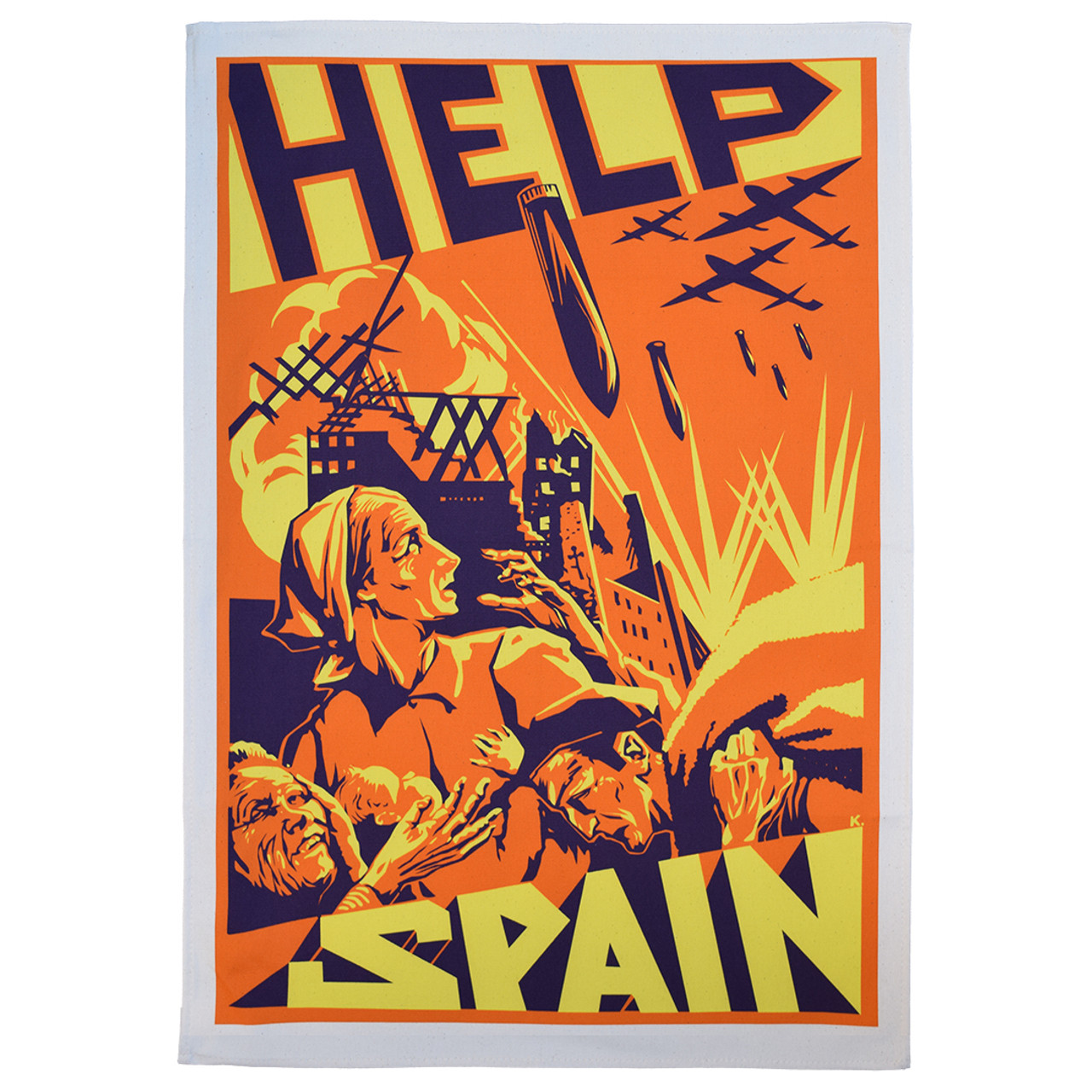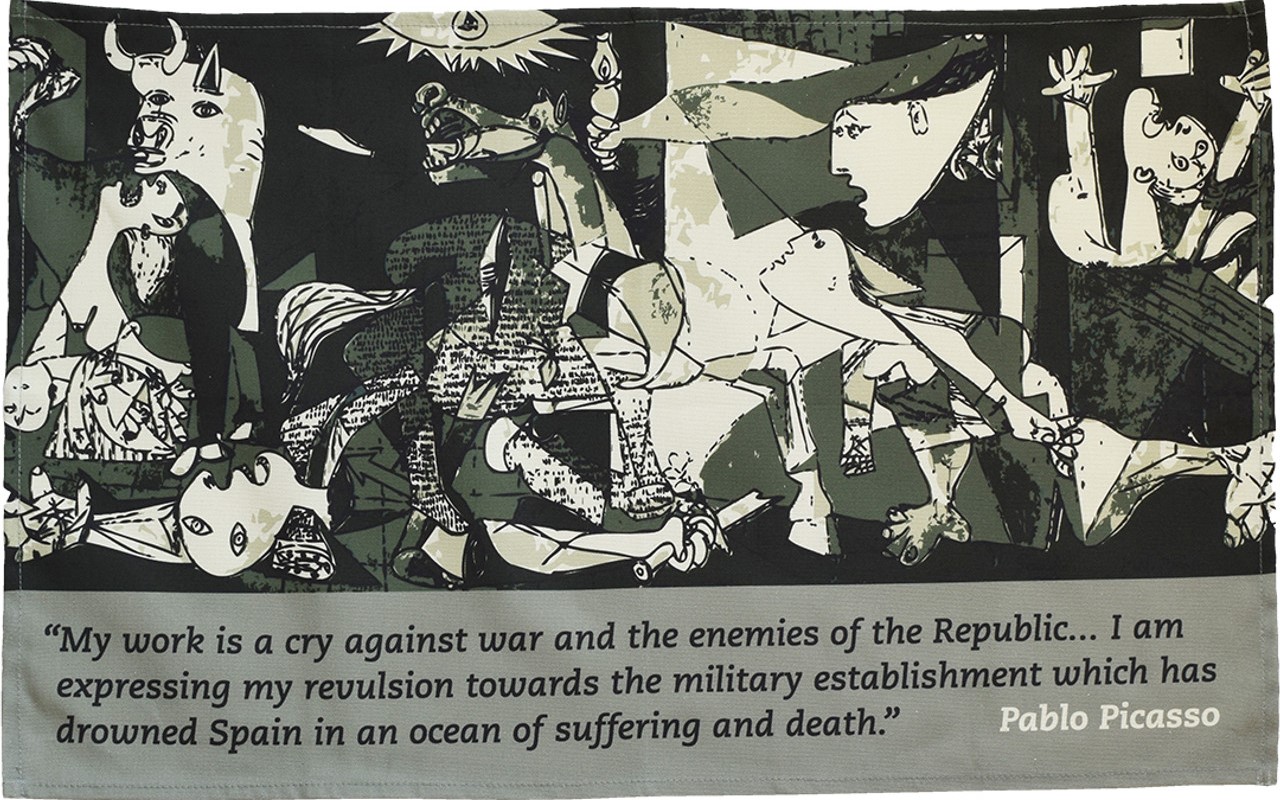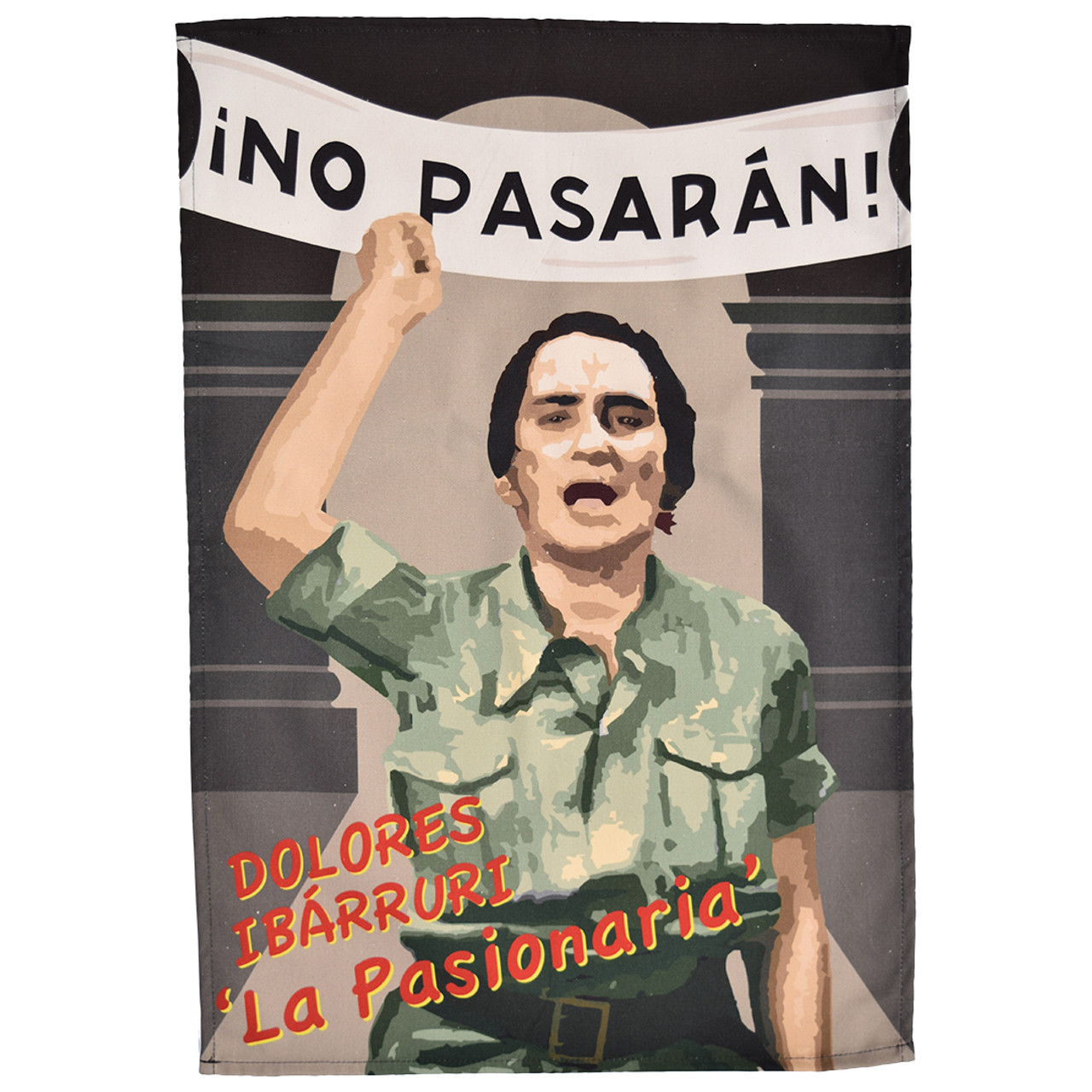For Catalonia: Lluís Companys's Struggle for Freedom
Posted by Pete on 16th Oct 2024
From rural peasantry, to law, politics, the Presidency of Catalonia and the firing squad, Pete charts the life of Lluís Companys
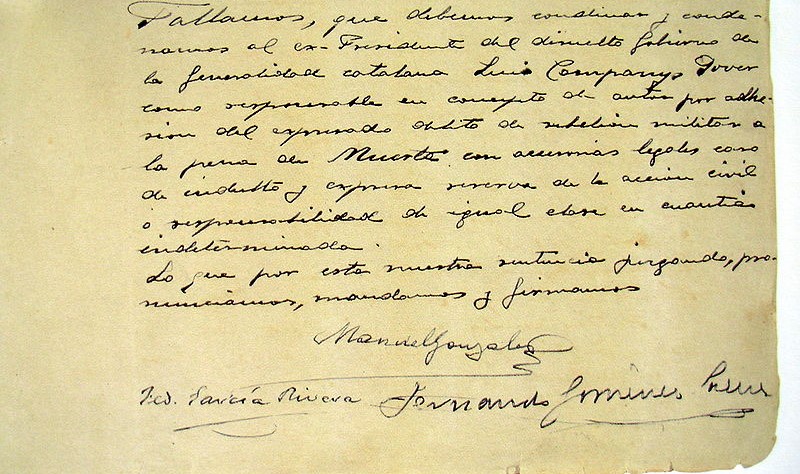
The death sentence of Lluís Companys
When George Orwell wrote about the Spanish Civil War, it’s no accident he focused on Catalonia.
Within the wider blooming of left-wing radicalism in 1930s Spain, Catalans were especially active.
In Catalonia, labour activism and socialist struggle combined with demands for national self-determination.
And if Catalonia was key to radical politics in Spain, Lluís Companys was key to radical politics in Catalonia.
Born in El Tarròs near Lleida in 1882, Companys emerged as a leading activist of the Catalan Left during the 1910s, and he served as President of autonomous Catalonia during the Spanish Civil War.
Captured by the fascists in 1940, Companys was tortured and then executed on this day in 1940.
The Spanish Civil War broke out in 1936, after General Franco - supported by Nazi Germany and fascist Italy - led right-wing nationalist rebels against the democratically elected government
See the Help Spain - Spanish Civil War tea towel
Companys was born into a peasant family in rural Catalonia, but he went to the capital, Barcelona, for his education.
Trained as a lawyer, Companys quickly went to work for Catalan workers and political activists.
Companys was politicised by Spanish government repression of free speech in Catalonia.
In 1906, a new law criminalised all speech against the Spanish monarchy.
This meant that Catalan demands for republican autonomy or independence were now illegal.
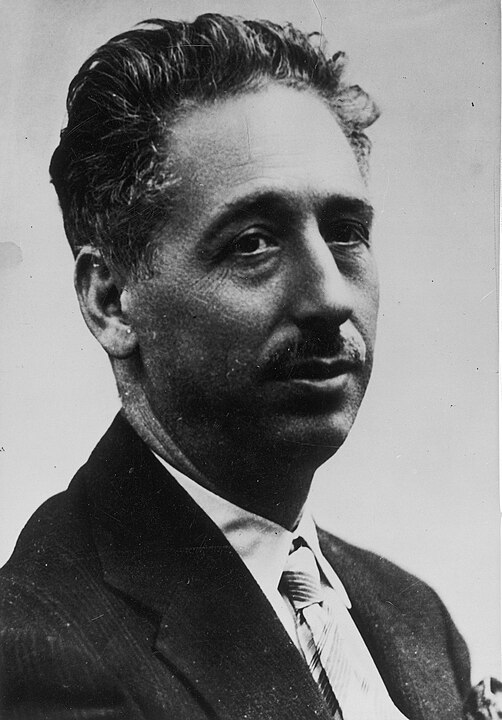
Lluís Companys, President of the Government of Catalonia
The forces of reaction in Spain were not only royalist and capitalist during the interwar years, but centralist, too.
The Iberian Peninsula was so rich in cultural diversity, conservatives thought that the only way to keep it together politically was by imposing centralisation from the top down.
This is why not only the Catalans but also the Basques were driven to join the democratic coalition against Franco, and why regional autonomy was adopted as a basic principle of Spanish republicanism.
But I’m getting ahead of myself...
In response to the government crackdown on Catalan nationalism during the 1910s, Lluís Companys created the Solidaritat Catalana coalition to resist.
Companys also recognised the central role of the working class and peasantry to radical politics in Catalonia.
He helped to lead the labour left of the Partit Republicà Català, and later the Esquerra Republicana de Catalunya (ERC, Republican Left of Catalonia), and Companys helped set up a new peasants’ trade union, too.
In 1937, in the aftermath of the devastating bombardment of the Basque town of Guernica by the Nazi and Italian fascist forces, Pablo Picasso painted his iconic masterpiece, 'Guernica'
See the Picasso Guernica tea towel
During the 1920s, the right-wing aristocrat and militarist Miguel Primo de Rivera was the dictator of Spain, so Companys was repeatedly jailed for his activism.
But things changed in the 1930s.
In 1931, after winning local elections in Barcelona and the rest of Catalonia, Companys and the Catalan Left were instrumental in overthrowing Rivera’s regime and the Spanish monarchy.
The Spanish Republic was born, and Catalan autonomy was radically expanded by the restoration of the self-governing ‘Generalitat’ of Catalonia.
In December 1933, Companys became President of the Generalitat, but the national government of Spain had already begun to swing back to the Right.
In this context, Companys tried another revolution in order to restore the left-wing principles of the new republic.
Cooperating with a labour uprising by miners in Asturias, Companys declared an ‘Estat Català’ (Catalan State) within a ‘Spanish Federal Republic’ in October 1934.
But the would-be social revolution was put down across Spain by the national government.
In a dry-run of Franco’s rebellion two years later, Spanish colonial troops and the paramilitary Guardia Civil were mobilised to put down the Left, and Companys was sentenced to 30 years in prison.
Dolores Ibárruri Gómez, known as 'La Pasionaria' ('the Passionflower'), was a Republican heroine remembered particularly for her famous slogan ¡No Pasarán! ('They shall not pass') from a speech made in 1936 during the Battle for Madrid
See the ¡No Pasarán! tea towel
But politics changed fast in 1930s Spain.
In 1936, a ‘Popular Front’ coalition of all of the Left parties in Spain, including socialists, communists, and anarchists, was elected to counter the threat of fascism.
The new government released Companys from jail, and he was restored to the presidency of the Generalitat of Catalonia.
But the Spanish Right reacted to the election of the Popular Front by abandoning the democratic process altogether.
In July 1936, Franco launched his murderous, fascist-backed rebellion against the government.
Under Companys’ leadership, autonomous Catalonia became a vital hub of the Republican struggle to defend Spanish democracy during the Civil War.
Companys oversaw the military effort to resist Franco in Catalonia for three years, but it wasn’t enough.
On 24 January 1939, two days before the fall of Barcelona to the fascists, Companys was forced into exile in France.
Companys’ ordeal still wasn’t over.
A year after Companys arrived, Nazi Germany invaded France, and one month after that, France surrendered.
Companys was arrested by the new Vichy regime in the south.
Passed through the chain of fascist allies, Companys was transferred to the Nazis, and then handed back to Francoist Spain.
All along the way, Companys was tortured by interrogators and prison guards until, inevitably, he was executed in Barcelona on 15 October 1940.
Companys, unbroken by fascism, refused a blindfold before the firing squad and, barefoot, he roared “For Catalonia!” as they fired.
Companys became one of hundreds of thousands of martyrs in the struggle for socialism and democracy throughout Spain, as well as for the self-determination of Catalonia.

